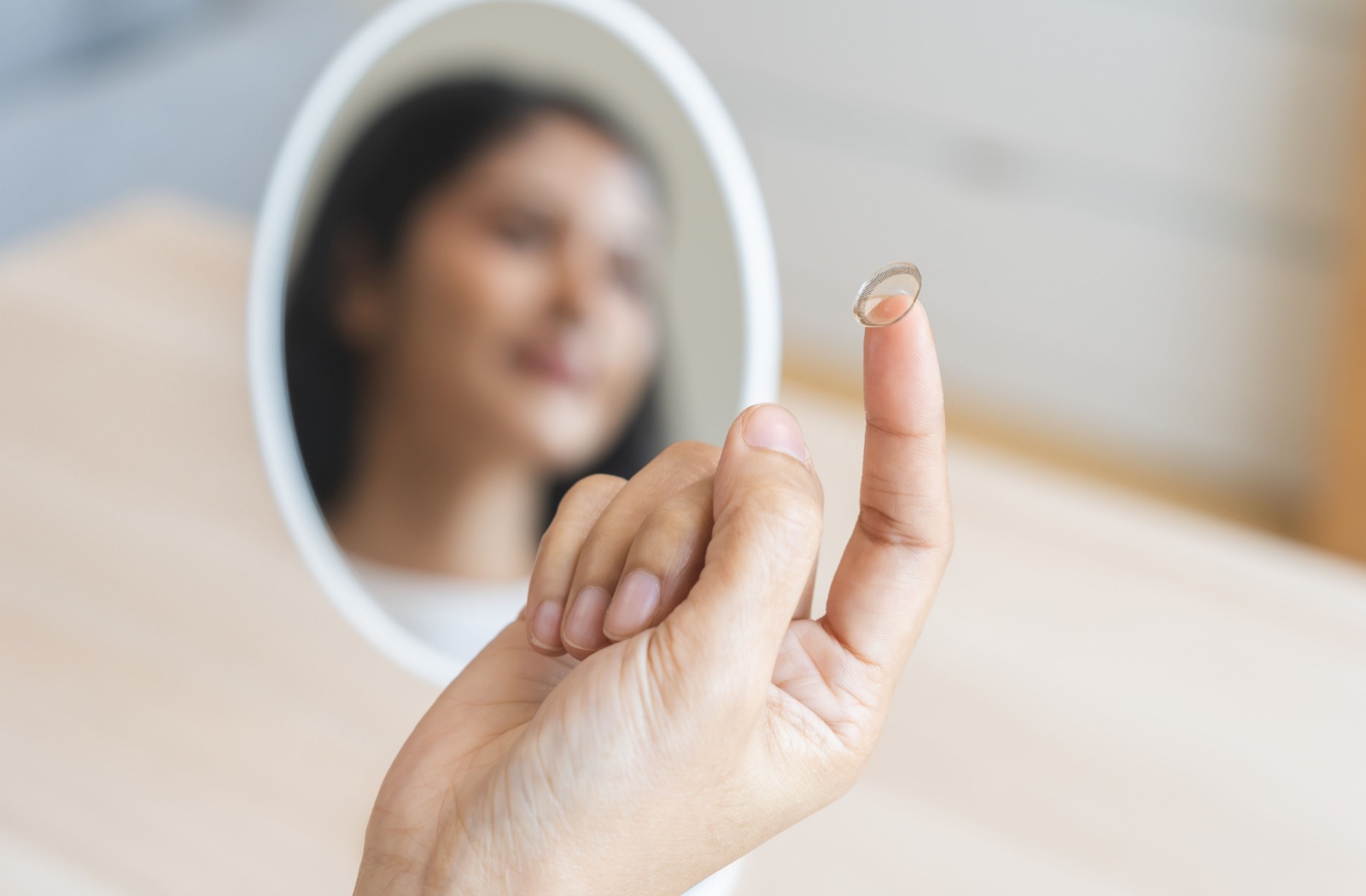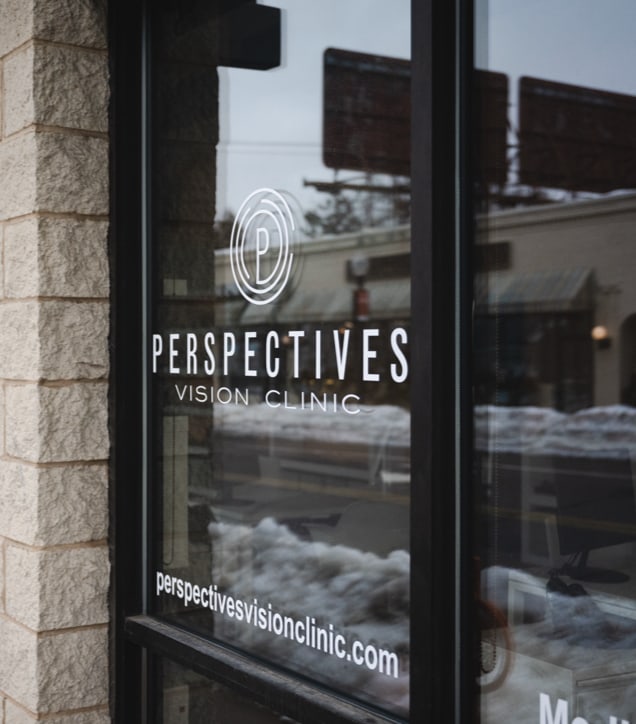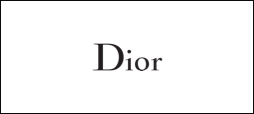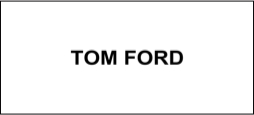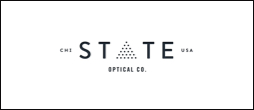Contact lenses are a great way to experience life without having some of the limitations that come with wearing glasses. When considering contact lenses for children or teenagers, parents often wonder, “How old does my child need to be?” While there isn’t a one-size-fits-all answer, several factors can help determine the right age for contact lenses. Around age 8 your child might be ready to try wearing contacts.
Maturity and Responsibility
One of the most crucial factors in deciding whether a child is ready for contact lenses is their level of maturity and responsibility. Unlike glasses, contact lenses require diligent hygiene and care to avoid eye infections and other complications. Children who can follow instructions, maintain good hygiene, and remember to take out their lenses before bed may be good candidates for contacts.
Hygiene and Care
Proper hygiene is paramount when it comes to wearing contact lenses. Children need to wash their hands thoroughly before inserting or removing their lenses to prevent the introduction of bacteria and other pathogens to the eyes. They also need to clean and disinfect their lenses regularly if they are using reusable types, such as monthly or bi-weekly lenses. This process involves using the appropriate contact lens solution to rub and rinse the lenses and storing them in a clean case with fresh solution.
Indicators of Readiness
Assessing whether your child is ready for contact lenses can be done by observing their daily routines and responsibilities. Here are some indicators of readiness:
- Chores Completion: Does your child regularly complete household chores without constant reminders? This can be a sign that they can handle the routine of lens care.
- Personal Hygiene: Is your child responsible for their own personal hygiene, such as brushing their teeth, showering, and maintaining clean clothes? Good personal hygiene habits suggest they can manage the cleanliness required for contact lenses.
- Daily Schedule Management: Can your child manage their daily schedule, including schoolwork, extracurricular activities, and other commitments? Being organized and responsible in these areas indicates they may be capable of incorporating contact lens care into their routine.
Responsibility
Contact lenses require a higher level of responsibility compared to glasses. Children must be aware of the importance of not sharing their lenses with others, not using them beyond the recommended period, and knowing what to do if they experience any discomfort or problems with their lenses. They should also be aware of the potential risks associated with improper lens care, such as eye infections, corneal ulcers, and other serious complications.
Parental Involvement
Parental involvement and supervision are also critical, especially in the initial stages of wearing contact lenses. Parents can help reinforce good habits, provide reminders about lens care routines, and ensure that their child is following the eye care professional’s instructions. Over time, as the child becomes more accustomed to the routine and demonstrates consistent responsibility, parental supervision can be gradually reduced.
Age Recommendations
While maturity is key, age can also serve as a guideline. Many eye care professionals recommend waiting until a child is at least 8 years old before considering contact lenses. By this age, most children can handle the responsibility of cleaning and maintaining their lenses. However, every child is different, and some may be ready earlier or later.
Sports & Activities
For active children and teenagers, contact lenses can offer several advantages over glasses. Contacts don’t break as easily during sports, provide better peripheral vision, and don’t fog up. If your child is involved in sports or other activities where glasses may be a hindrance, contacts could be a beneficial alternative.
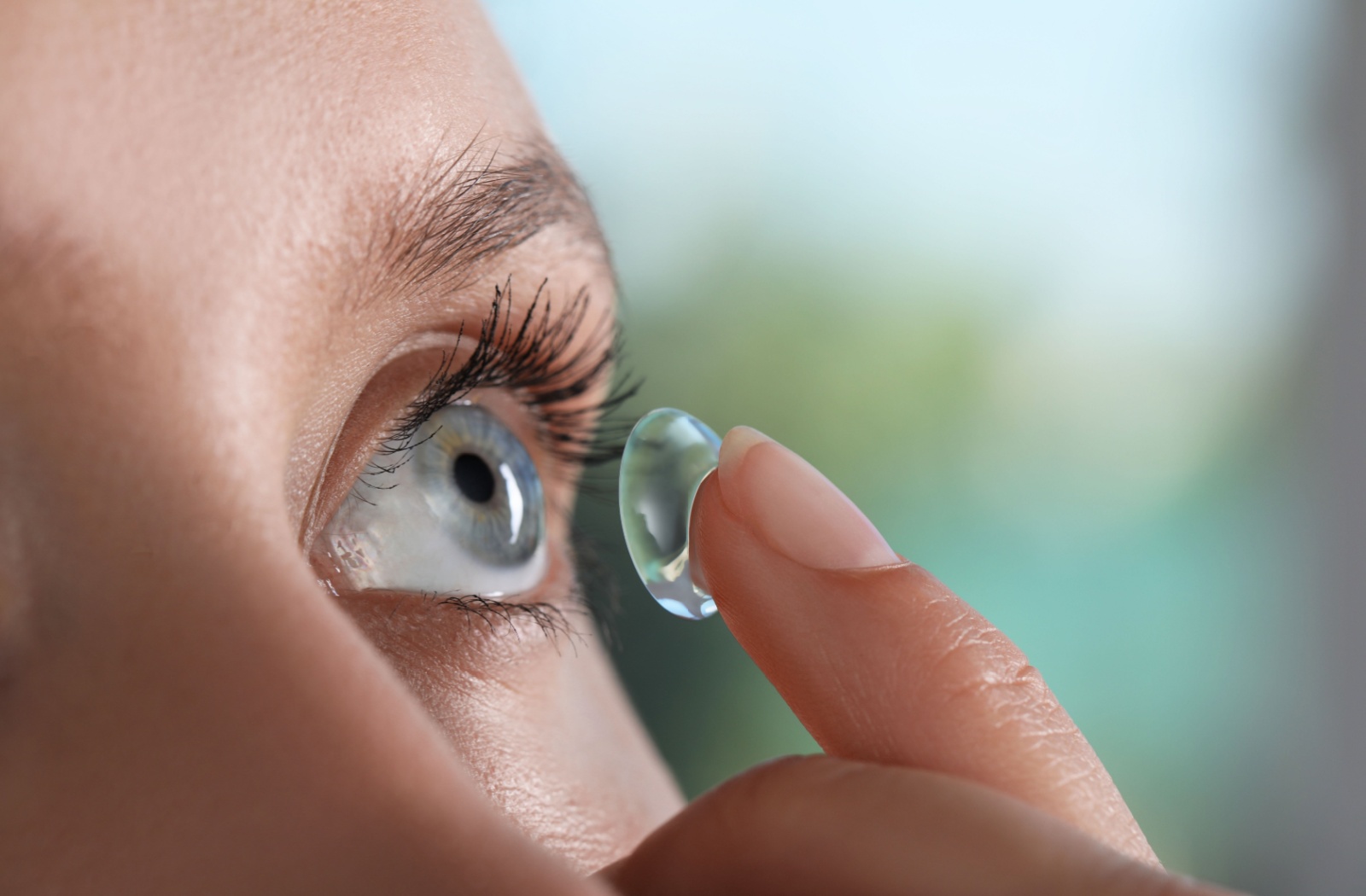
Types of Contact Lenses
When it comes to choosing contact lenses for younger wearers, daily disposable lenses are often recommended. These lenses are worn once and then thrown away, reducing the risk of infections and making the care routine simpler. Monthly or bi-weekly lenses require more maintenance, which might be better suited for older teens.
Consultation with an Eye Care Professional
Before making any decisions, it’s crucial to consult with an eye care professional. An optometrist or ophthalmologist can assess your child’s vision needs, discuss the pros and cons of contact lenses, and determine if your child is a suitable candidate. They can also provide training on how to insert, remove, and care for the lenses.
Monitoring & Follow-Up
Once your child starts wearing contact lenses, regular follow-up appointments are essential. These appointments ensure that the lenses fit well, the eyes remain healthy, and the prescription is up to date. It’s also an opportunity to address any issues or concerns that may arise.
When to Pursue Contact Lenses
There is no specific age that is universally right for children to start wearing contact lenses. Instead, it depends on the child’s maturity, responsibility, lifestyle, and specific vision needs. With proper guidance from an eye care professional and careful consideration of these factors, contact lenses can be a safe and effective vision correction option for children and teenagers.
Are you considering contact lenses for your teen? Book an appointment with our eye care professionals today to find out more.
